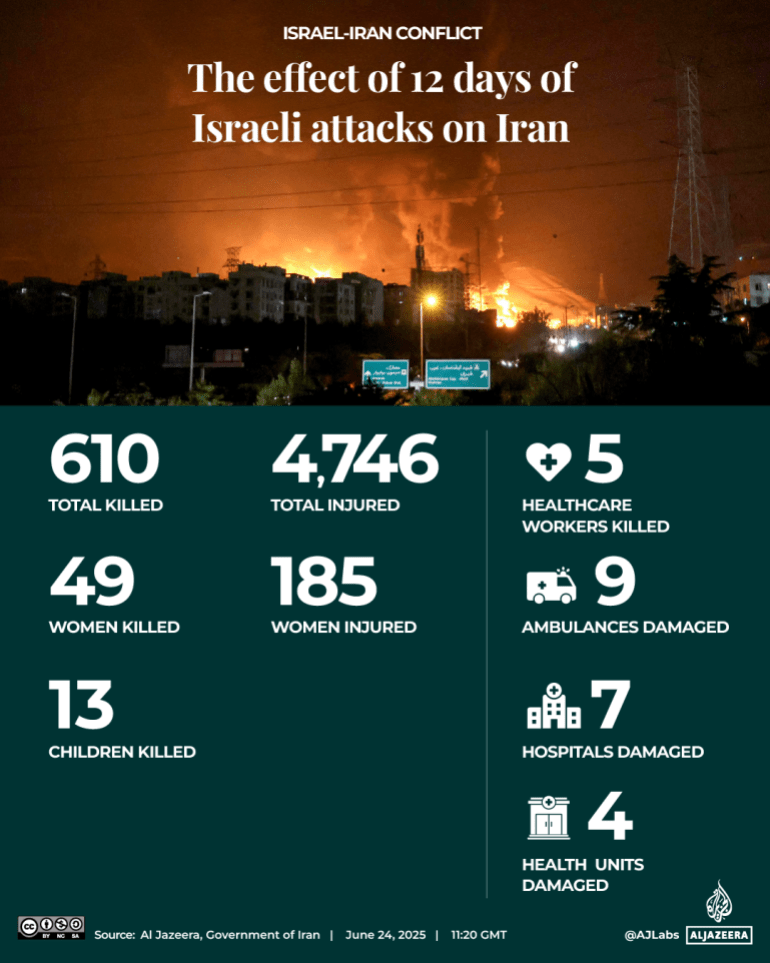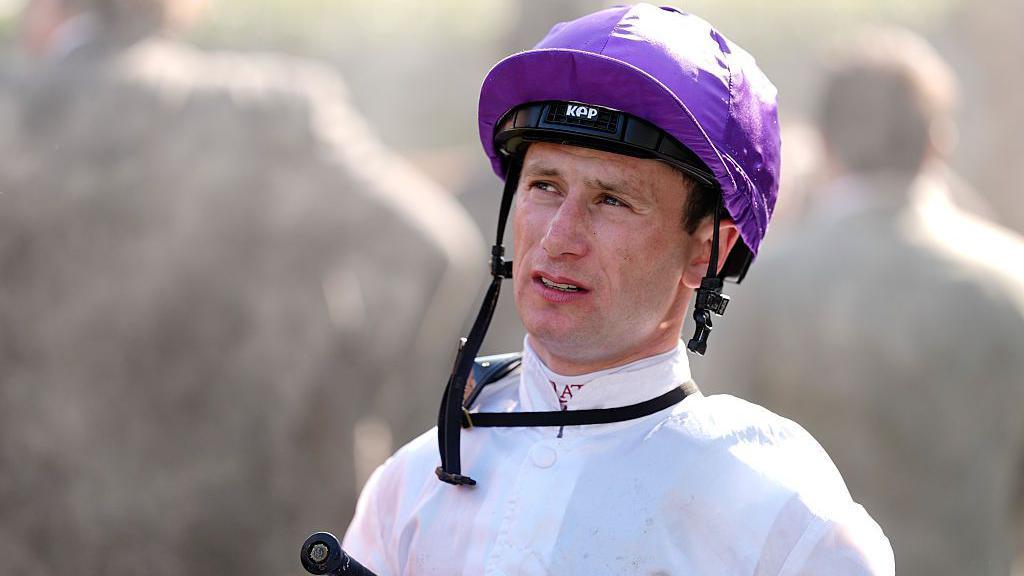An intense 12‑day conflict between Israel and Iran erupted on June 13, 2025, after Israel launched air strikes on Iranian military and nuclear sites, killing key nuclear scientists and military commanders.
More than 200 Israeli fighter jets hit more than 100 nuclear and military facilities along with residential neighbourhoods across Iran.
Iran retaliated with hundreds of ballistic missiles against Israeli cities. In the days that followed, Israel and Iran traded missiles as casualties mounted on both sides.
The United States entered the military clash on June 22 with bunker-buster strikes on Iran’s Natanz, Fordow and Isfahan nuclear facilities.
A fragile ceasefire was brokered by the US on June 24, hours after Iran had fired missiles at its largest airbase in the Middle East, based in Qatar.
How many people were affected in Iran?
According to Iran’s Ministry of Health and Medical Education, thousands of people were injured, hundreds were killed, and public infrastructure was damaged.
As of June 24:
• Total injured: 4,746, including 185 women
• Total people killed: 610, including 49 women and 13 children. The youngest was two months old.
• Injured healthcare workers: 20
• Healthcare workers killed: 5
• Damaged ambulances: 9
• Damaged hospitals: 7
• Damaged health units: 4
• Damaged emergency bases: 6
In Iran, as the bombardment began, thousands of Iranians tried to flee the capital and other major cities towards northern provinces bordering the Caspian Sea.
Nearly nine million people headed out in cars from the major cities, especially Tehran.
Among them was Zein*.
Zein, 34, says he left his home in Tehran and headed to Kelardasht in Mazandaran province, north of the capital, on the Caspian Sea coast. The road trip took nearly 16 hours in bumper-to-bumper traffic out of the city.
“In our area, there are many military zones nearby. Because of the warnings they had given, we didn’t feel safe or have peace of mind,” he says. “I think Tehran felt very panicked, and we were just thinking about getting ourselves out of Tehran and reaching somewhere where we could feel more secure. ”
Unlike his parents’ generation, who lived through the devastation of the Iran-Iraq war in the 1980s, this was Zein’s first time experiencing such intense military conflict.
“The fear of not knowing whether you’ll ever return to your home or not. Whether your home will still be there or not. You have to leave your city with a thousand worries, and in such a terrifying situation, because of the roads, the traffic, and the lack of management, you somehow have to get yourself to safety,” he says.
“And there’s no support – you have to figure everything out on your own. ”

How widespread were the attacks on Iran by Israel?
According to Al Jazeera’s Sanad fact-checking agency, Israel and the US launched at least 145 air strikes on Iran.
The actual count may be much higher, as another source, the Armed Conflict Location and Event data (ACLED) tabulated at least 508 air strikes by Israeli forces on Iran.
How did Iran retaliate and attack Israel?
According to ACLED, Iran attacked Israel at least 120 times. These strikes included ballistic missiles and drones. Many were intercepted with US help and some hit residential areas.
Iran mainly targeted Tel Aviv and areas around it, and one of the significant hits was the Soroka Medical Center – a strike that injured dozens. Among other targets were the Israeli Military Intelligence School, the Ministry of Interior in Haifa, the Weizmann Institute of Science, and an oil refinery and power plants.
According to the Israeli military, Iran launched up to 1,000 ballistic missiles and drones at Israel, and about 90 percent were intercepted.
How many people were affected in Israel?
According to Israel’s Ministry of Health, as of June 24, the number of people killed and injured across Israel was:
Total injured/hospitalised: 3,238
Total people killed: 28

The Iranian missiles and drones that were able to make it past Israel’s interceptors mainly struck neighbourhoods in Tel Aviv and Haifa, where there was damage to apartment buildings.
Many residents affected by the Iranian strikes from Tel Aviv to Haifa were able to escape into bomb shelters.
According to the Reuters news agency, many families with safe rooms spent most of the 12 days there, while others would use public shelters whenever an alert was raised.
*Name changed to protect the identity, at Zein’s request.







